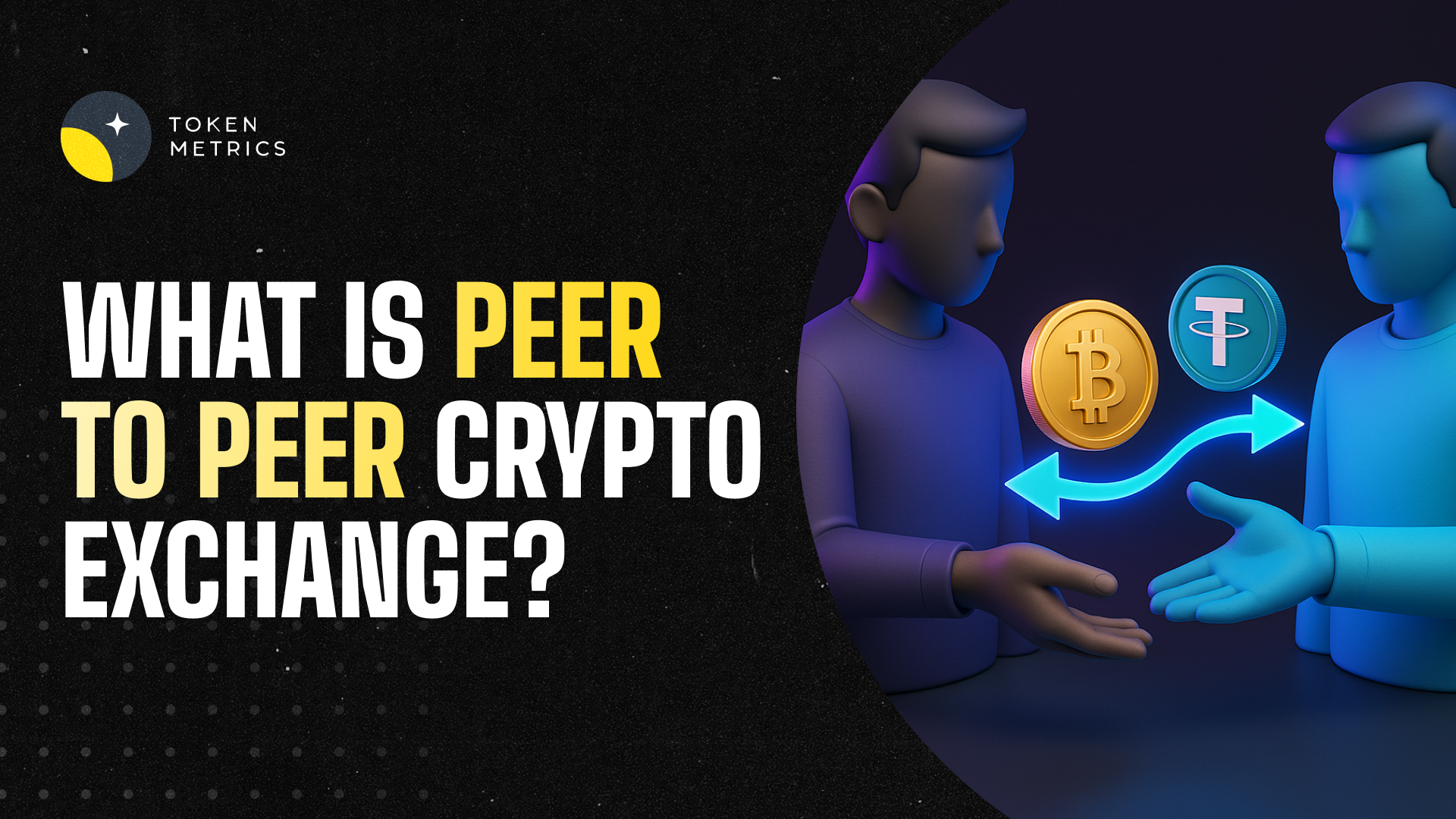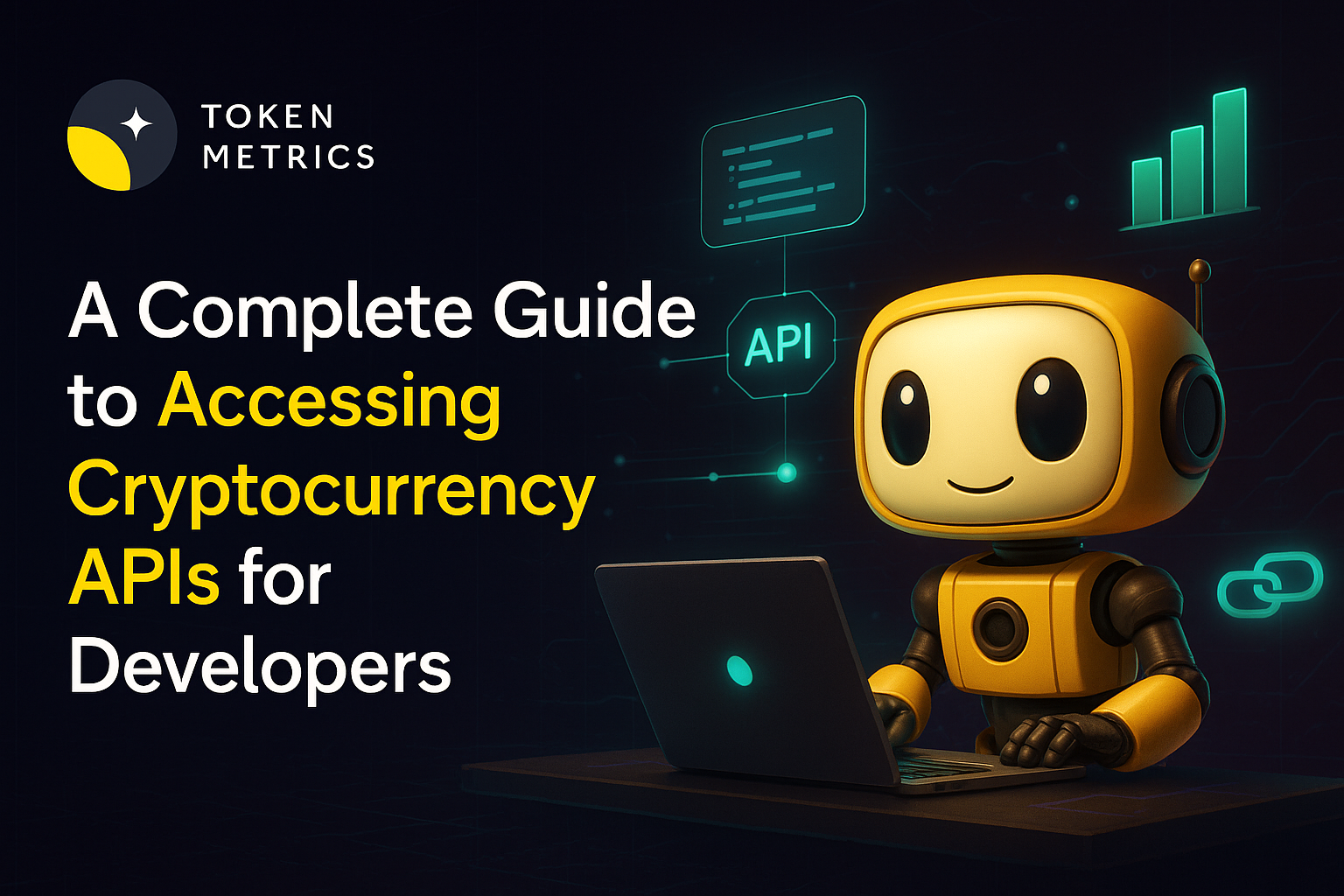
What is Peer to Peer Crypto Exchange? A Complete Guide for Beginners

Introduction to P2P Crypto Exchange
Understanding what is peer to peer crypto exchange is essential for anyone interested in trading digital assets in today’s evolving cryptocurrency market. A peer to peer (P2P) crypto exchange is a platform that enables users to trade cryptocurrencies directly with one another without the involvement of a central authority. Unlike centralized exchanges, which act as intermediaries and control the flow of transactions, P2P crypto exchanges facilitate decentralized trading, creating a secure and transparent environment for crypto trading.
This decentralized nature offers several advantages, including lower trading fees and greater control over transactions. P2P crypto exchanges are rapidly gaining popularity among users seeking a more cost-effective and convenient way to trade digital assets. By eliminating the middleman, these platforms foster a global marketplace where buyers and sellers can connect directly, making crypto trading more accessible and efficient.
How P2P Crypto Trading Works
P2P crypto trading operates by connecting buyers and sellers directly through a trading platform that acts as a facilitator rather than a controller. Users on these platforms can create personalized trading offers, specifying the amount of cryptocurrency they wish to buy or sell and the transaction terms. One of the key features of P2P trading is the flexibility in choosing payment options. Traders can select from diverse payment methods, including bank transfers, cash payments, and other convenient payment methods, depending on what suits them best.
To ensure secure and transparent transactions, P2P crypto exchanges rely heavily on escrow services. When a trade is initiated, the cryptocurrency is held in escrow by the platform until both parties confirm the transaction terms have been met. This mechanism protects users from fraud and guarantees that the digital assets are only released when the agreed conditions are fulfilled. The entire network supporting P2P crypto trading is built on blockchain technology, which validates transactions and maintains a secure ledger, ensuring fast and secure transactions across the global market.
Benefits of Decentralized Trading
Decentralized trading through P2P crypto exchanges offers multiple benefits that appeal to users looking for more control and cost savings. One of the most significant advantages is the lower trading fees compared to traditional exchanges. Since P2P platforms do not rely on a central authority to manage trades, they can operate with reduced overhead costs and pass those savings on to users.
Moreover, P2P crypto exchanges provide a secure and transparent way to trade digital assets, reducing the risk of scams that can be prevalent in other trading environments. Users enjoy more autonomy, negotiating directly with their trading partners and creating personalized trading offers tailored to their needs. This level of customization is not typically available on centralized exchanges.
The rise of decentralized finance (DeFi) has further propelled the popularity of P2P crypto exchanges. By enabling peer-to-peer transactions without intermediaries, these platforms embody the core principles of DeFi, empowering users to manage their crypto assets securely and independently.
Comparison to Traditional Exchanges
When comparing P2P crypto exchanges to traditional exchanges, several key differences stand out. Unlike traditional exchanges that often charge significant trading fees, many P2P crypto exchanges either charge minimal fees or none at all, making them a more attractive option for traders looking to maximize their returns.
Security and privacy are other critical areas where P2P platforms excel. Traditional exchanges typically require users to provide extensive personal information to comply with regulatory requirements, which can be a barrier for privacy-conscious users. In contrast, P2P crypto exchanges offer a more private and secure way to trade, often requiring less personal data while still maintaining regulatory compliance.
Additionally, P2P crypto exchanges are designed to be user-friendly and convenient, allowing users to trade digital assets directly with their chosen trading partners. This direct interaction often results in more flexible exchange rates and payment options, enhancing the overall trading experience compared to the more rigid structures of traditional exchanges.
Security Measures
Security is paramount in the world of cryptocurrency transactions, and P2P crypto exchanges implement robust security measures to protect users. Two-factor authentication (2FA) is commonly used to add an extra layer of account security, preventing unauthorized access. Escrow services play a vital role in securing transactions by holding funds until both parties confirm the trade’s completion.
Smart contracts are increasingly integrated into P2P platforms to automate and enforce transaction terms securely and transparently. These self-executing contracts reduce the risk of disputes and fraud by ensuring that trades occur only when predefined conditions are met.
In the event of disagreements, reputable P2P crypto exchanges have a dispute resolution system in place to provide fair and efficient conflict management. Additionally, some platforms utilize distributed hash tables within their network structure to enhance transaction security and transparency, ensuring that all trades rely on validated and trustworthy processes.
Payment Methods
One of the defining features of P2P crypto exchanges is their support for diverse payment methods, catering to users worldwide. Traders can select the most convenient payment method for their needs, whether that’s bank transfers, cash payments, or other secure payment methods. This flexibility allows for seamless trading of digital assets across different regions and currencies.
P2P platforms often support multiple fiat currencies, broadening the accessibility of crypto trading to a global audience. The use of escrow services further ensures that payments are secure and transparent, minimizing the risk of fraud during transactions. By accommodating a wide array of payment options, P2P crypto exchanges make it easier for users to engage in crypto trading regardless of their preferred financial systems.
Regulatory Compliance
Despite their decentralized nature, P2P crypto exchanges must adhere to regulatory compliance standards to maintain legitimacy and trust. This includes enforcing anti-money laundering (AML) and know-your-customer (KYC) regulations to verify that all users are legitimate traders and to reduce fraudulent activities.
Reputable platforms implement strict security protocols such as two-factor authentication and escrow services to protect users and comply with legal requirements. Regulatory compliance is essential not only for protecting users but also for fostering a secure trading environment that encourages wider adoption of P2P crypto trading in the global market.
The Role of P2P Crypto Exchange in the Market
P2P crypto exchanges play a pivotal role in the broader crypto market by offering a secure, transparent, and cost-effective alternative to traditional trading platforms. Their decentralized networks allow users to trade digital assets directly, cutting down on intermediaries and associated fees.
The integration of blockchain technology and smart contracts ensures that transactions are validated and secure, providing users with confidence in their trades. As a result, P2P crypto exchanges are becoming increasingly popular, especially among users seeking lower costs and more control over their crypto assets. Their influence in the global marketplace is expected to grow, further shaping the future of cryptocurrency exchange.
Types of P2P Networks
P2P networks can be categorized into different types based on their structure and functionality. Structured networks utilize distributed hash tables to organize and locate resources efficiently, ensuring secure and transparent transactions within the network. This structure is particularly beneficial for P2P crypto exchanges as it enhances the reliability and security of the trading platform.
Unstructured networks, on the other hand, are more flexible and less organized, often used for applications like file sharing and communication. While they offer adaptability, they may lack the robustness required for secure crypto trading.
Hybrid networks combine elements of both structured and unstructured networks, offering a balance between security, flexibility, and efficiency. This hybrid approach allows P2P crypto exchanges to leverage the benefits of both network types, creating a more secure and user-friendly trading environment for digital assets.
In summary, understanding what is peer to peer crypto exchange reveals a powerful and evolving method for trading digital assets. By enabling direct trades between parties without a central authority, P2P crypto exchanges provide a secure, transparent, and cost-effective alternative to traditional exchanges. With robust security measures, diverse payment options, and regulatory compliance, these platforms are well-positioned to play a significant role in the future of cryptocurrency trading. Whether you are a beginner or an experienced trader, exploring P2P crypto trading offers exciting opportunities in the dynamic crypto market.

.svg)

Create Your Free Token Metrics Account

.png)




%201.svg)
%201.svg)


%201.svg)









.svg)




.png)